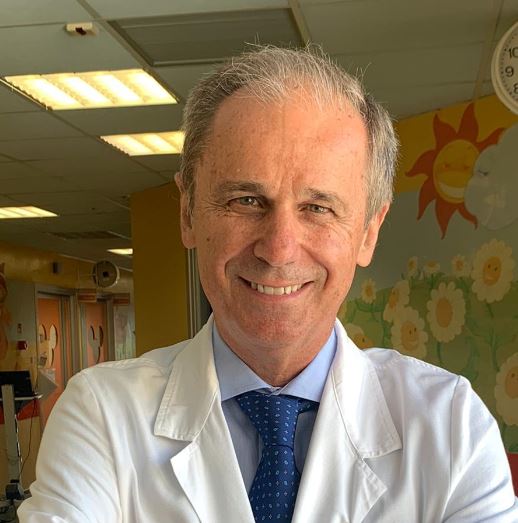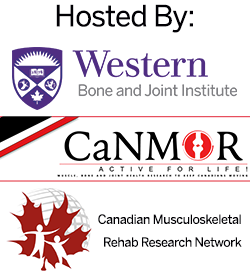Plenary Session Juvenile Arthritis, Care & Transitions
Session Chair: Erkhan Demirkaya ; Co-Chair: Sarah Schwartz
Session Description:Friday April 22, 2022 |

Friday April 22, 2022
|
Dr.Angelo Ravelli
|
"Recent Advances in The Management of Juvenile Idiopathic Arthritis"Abstract:Juvenile idiopathic arthritis (JIA) is a heterogeneous inflammatory disease of unknown etiology for which no curative treatment still exists. Recent advances in the understanding of disease pathophysiology have led to develop a new class of medications that inhibit selectively the principal mediators of inflammation and tissue damage. The introduction of these molecules, which are collectively termed biologic agents, has opened a new era in the treatment of JIA. The efficacy of anti-TNF agents and of the inhibitor of T-lymphocyte activation abatacept has been demonstrated in polyarthritis. IL-1 inhibitors and anti-IL-6 therapy have been found to be efficacious in systemic JIA, a disease that responds less well to ant-TNF drugs. Randomized controlled trials on JAK-inhibitors in systemic and polyarticular-course JIA and with IL-17 inhibitors in psoriatic arthritis and enthesitis related arthritis are being conducted or have been recently completed. Biologic medications are increasingly used early in the disease course and are an effective treatment for arthritis, systemic symptoms, and uveitis. These medications play a central role in the treat-to-target strategy. Although biologic agents have proved overall safe in children with chronic arthritis, additional data concerning long-term safety of these drugs will be provided by the large-scale pharmacovigilance studies that are underway. |
|
|
Bio: Angelo Ravelli, MD, is Scientific Director of the Giannina Gaslini Institute of Genoa, Italy and Professor of Pediatrics at the University of Genoa, Italy. His field of clinical and research activity focuses on pediatric rheumatology. He is currently President of the Pediatric Rheumatology European Association (PRES) and Past Chair of the EULAR Standing Committee for Pediatric Rheumatology. He has received numerous grants and awards, including the Gerolamo Gaslini Prize for Excellence in Research in 2004 and a grant from the American College of Rheumatology (ACR) and European League Against Rheumatism (EULAR) to conduct the project aimed to develop the new classification criteria for macrophage activation syndrome in systemic juvenile idiopathic arthritis. Professor Ravelli was the chairman of the International Consensus Conference which led to the development of the new classification criteria for macrophage activation syndrome in systemic juvenile idiopathic arthritis and of the International Task Force that developed the recommendations for the treat-to-target strategy in juvenile idiopathic arthritis. Professor Ravelli is author or co-author of more than 400 scientific papers and has been invited as speaker in more than 250 international congresses. On Google Scholar he has more than 32,000 citations and an H index of 88. |

Dr. Natasha Gakhal

Danielle McCormak

Dr. Evelyn Rosenblum
Friday April 22, 2022
|
Dr. Natasha Gakhal - Womens' College Hospital, University of TorontoMs. Danielle McCormak - The Arthritis SocietyDr. Evelyn Rozenblyum - SickKids and St. Mike's Hospital, Toronto Ontario
"Transition from Pediatric to Adult Care for Juvenile Arthritis" |
|
Abstract: Many juvenile arthritides persists into adulthood. For young adults transition from pediatric to adult care occurs during a vulnerable period, when they are experiencing many other transitions in their lives. Without a formal transition process, developmental and personal changes can make their medical needs a lower priority, leading to poor outcomes. Patients with juvenile arthritis transitioning from pediatric care requires a unique and tailored approach to care. It represents a unique developmental period where patients require education and guidance to develop into independent adults managing their own health. Juvenile arthritides also have unique medical concerns that require expertise and knowledge to manage. |
|
|
BIOS: Dr Natasha Gakhal is an adult rheumatologist at Women's College Hospital at the University of Toronto. Dr Evelyn Rozenblyum is a pediatric rheumatologist at St Michael's and SickKids Hospital at the University of Toronto and Danielle McCormack is an advanced care physiotherapist with The Arthritis Society. Collectively they run the Juvenile Arthritis Transition Clinic at Women's College Hospital in Toronto - an innovative model of care where pediatric, adult and allied health practitioners see and manage young adults with juvenile arthritis to improve medical and psychosocial outcomes for this population. |


